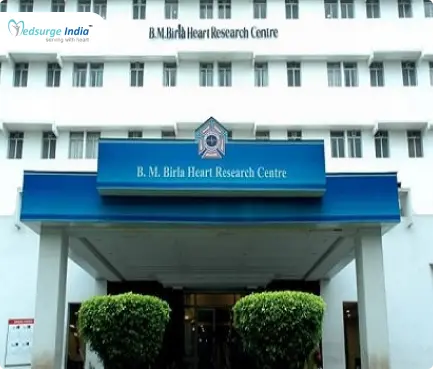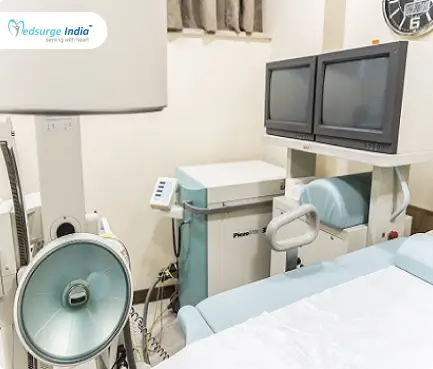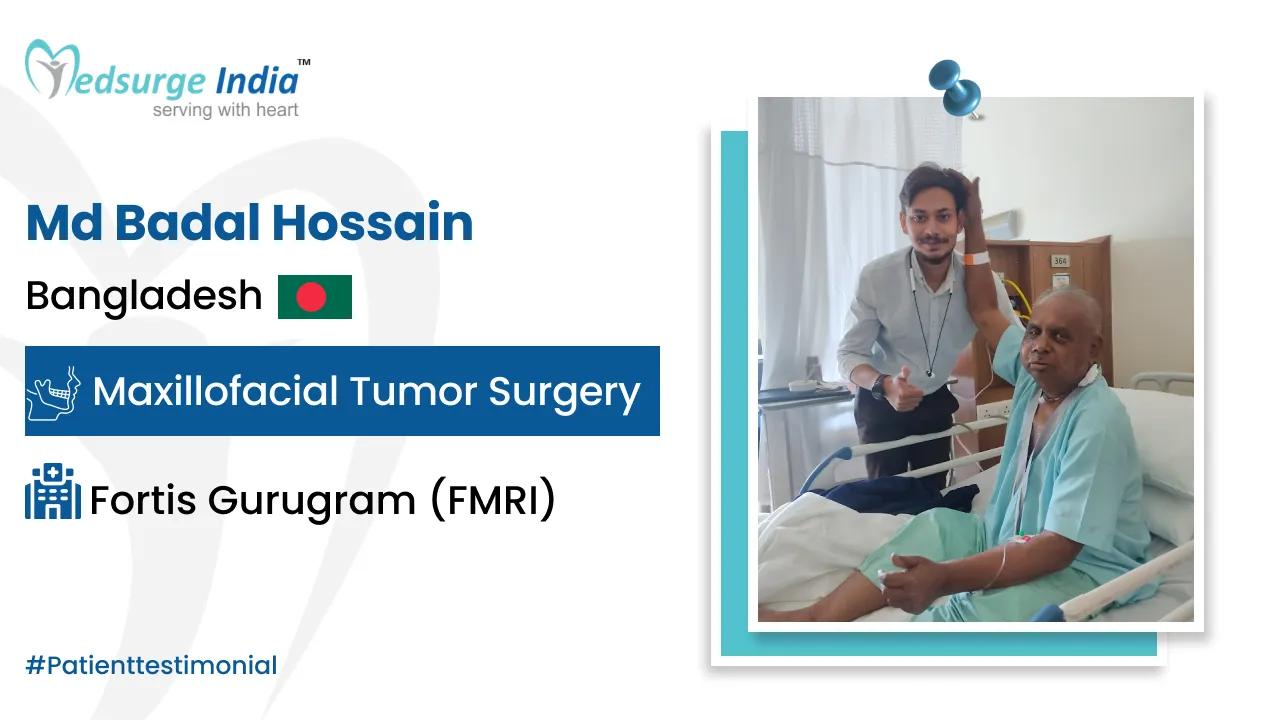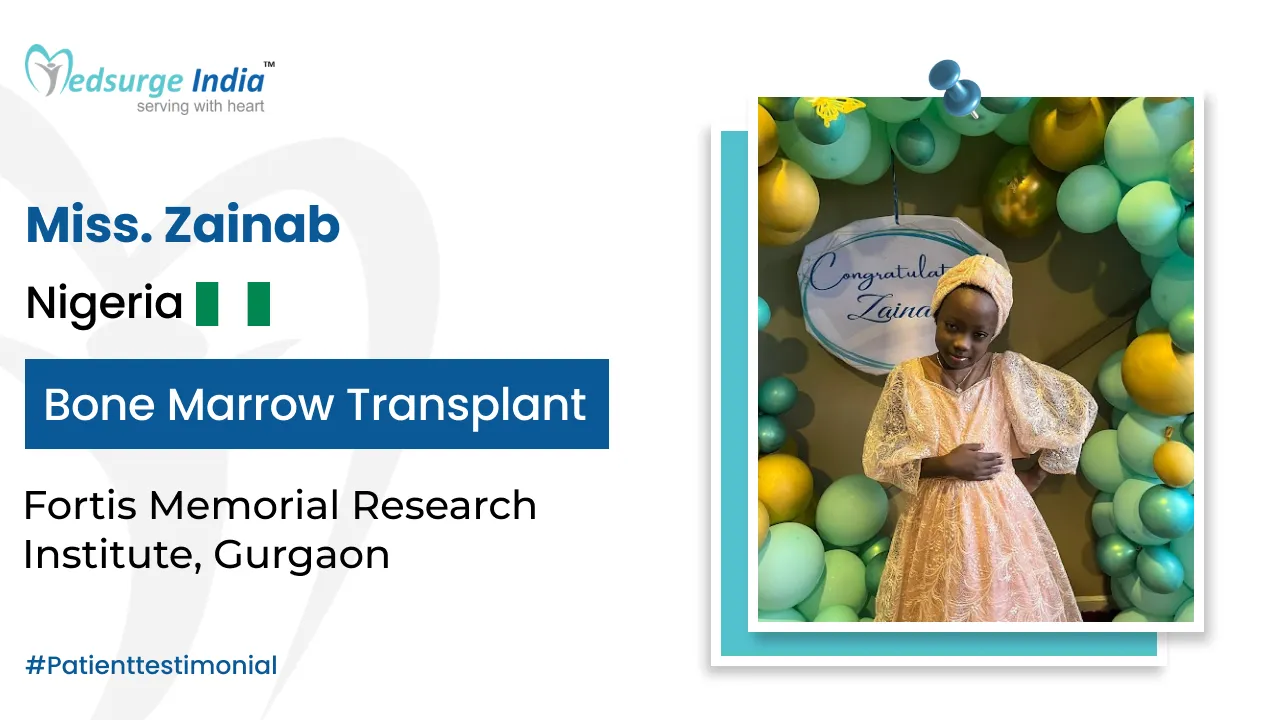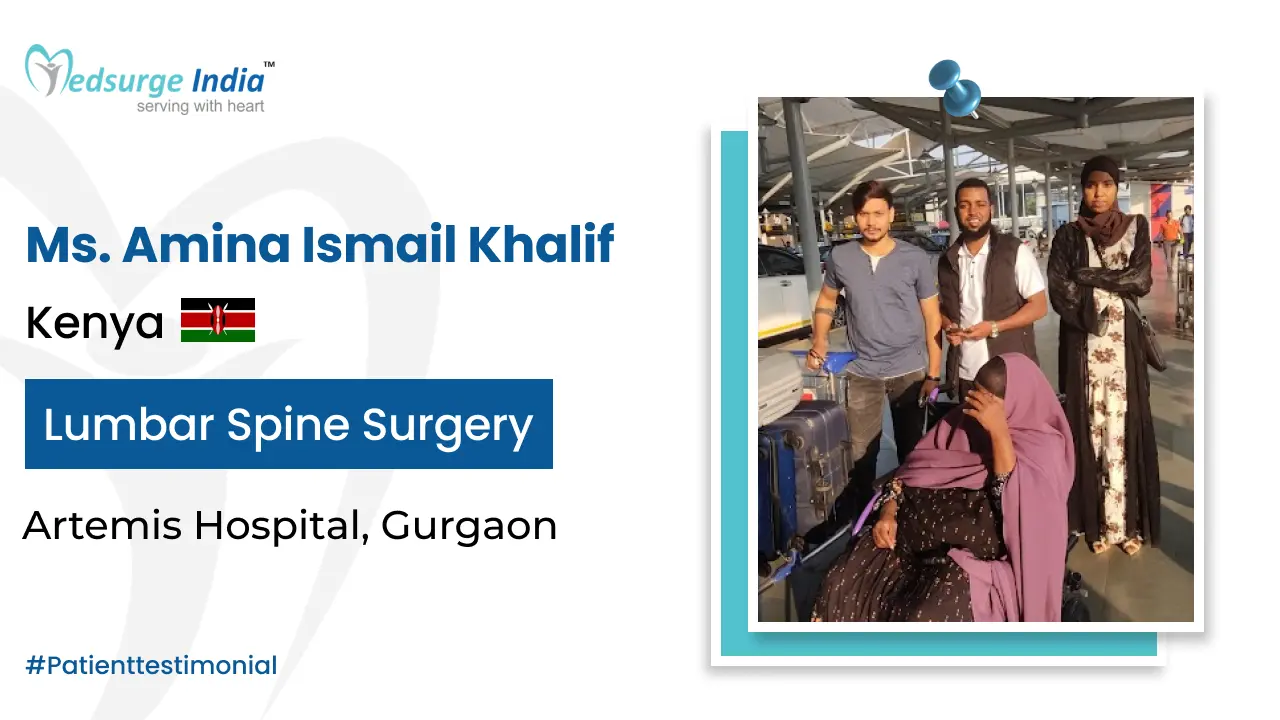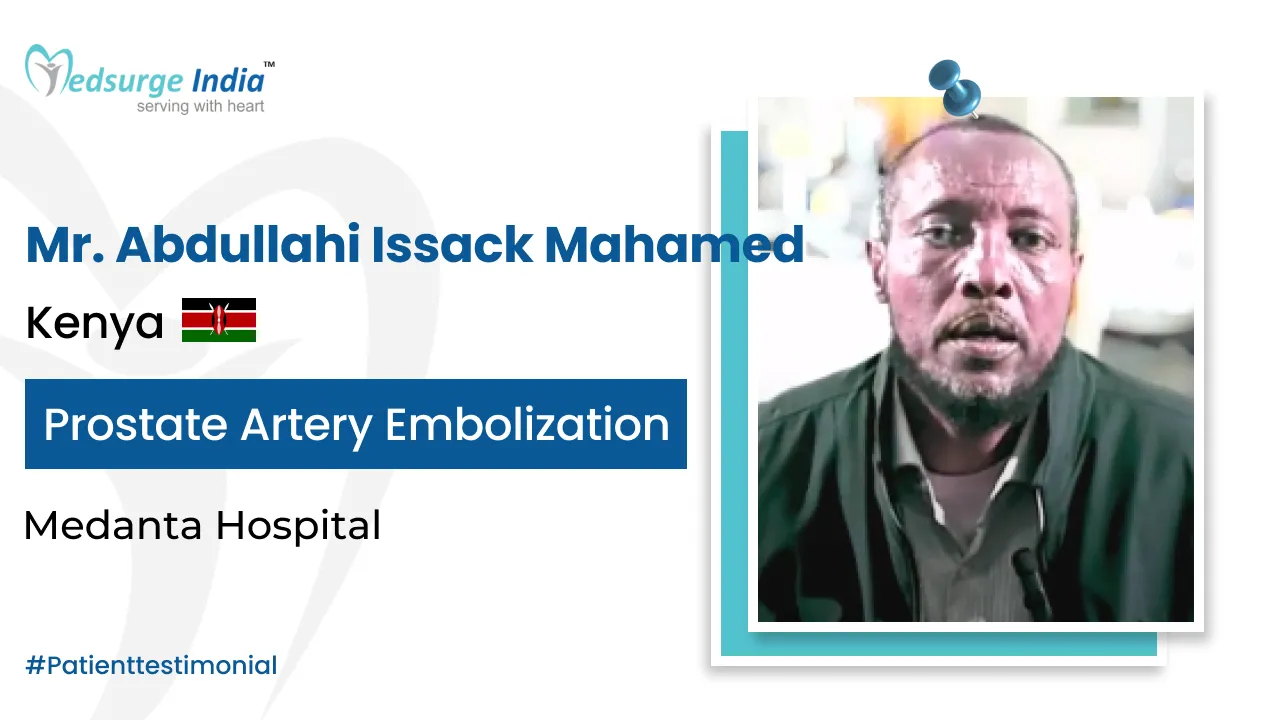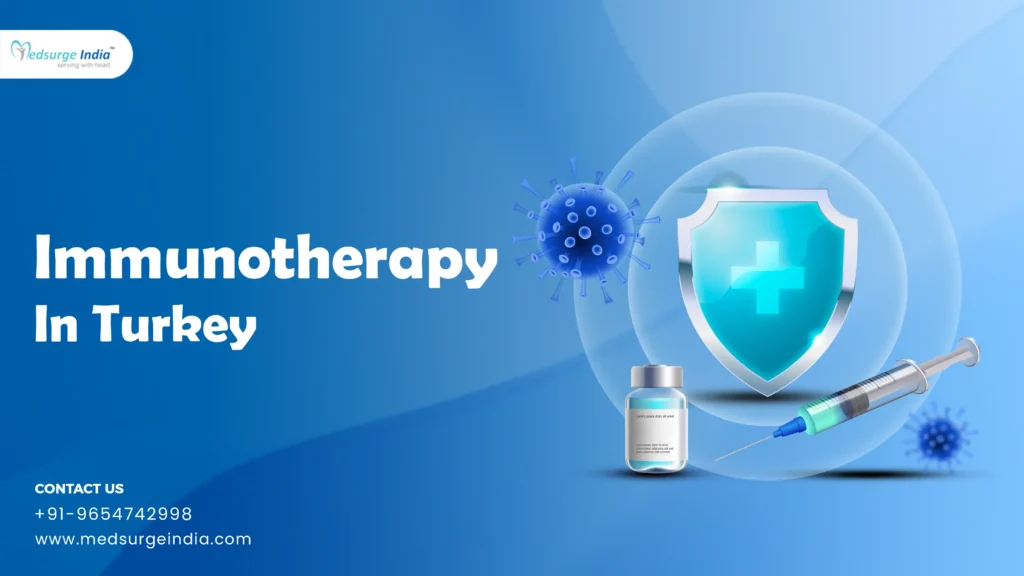
Immunotherapy also known as biological therapy is an important type of cancer treatment. It uses chemicals made in a laboratory or obtained from the body itself to boost the immune system and help the body find and destroy the cancer cells. It can be used to treat a wide range of cancers. It can be used alone or in combination with other cancer treatments like chemotherapy.
How Does Immunotherapy Work Against Cancer?
Our immune system can fight cancer by killing the cancer cells or slowing and preventing the spread of cancer. But cancer cells can evade the destruction using different ways. For example:
- Cancer cells can develop a genetic mutation that makes them invisible to the immune system.
- They can produce surface proteins that stop the immune cells in their tracks.
- They can change the surrounding healthy cells to block the immune system’s capacity to fight the cancer cells.
Immunotherapies work by destroying these special characteristics of cancer cells. Different immunotherapy treatments function in different ways. Certain immunotherapy techniques help the immune system prevent or slow the spread of cancer cells, while others help stop the cancer from spreading to other parts of the body or support the immune system’s attack on cancer cells.
Types of Immunotherapy
There are different types of immunotherapy, and they differ in their mechanisms of action. Typically, they are:
- Immune checkpoint inhibitors – The immune system of the body uses several checkpoints to help it differentiate between healthy and infected cells. Cancer occasionally manages to bypass these barriers by turning them off. Immune checkpoint inhibitors help to eliminate cancerous cells by activating these checkpoints.
- Monoclonal antibodies – These are proteins that attach themselves to foreign intruders. They aid the immune system to recognize them and eliminate them. Researchers create monoclonal antibodies that specifically target cancer cells and help the immune system find and destroy them.
- Immunomodulators – They are also called non-specific immunotherapies. Common examples are cytokines such as interferons and interleukins. They generally work by strengthening the immune system and help to destroy the cancer cells.
- Oncolytic virus therapy – Viruses that have been modified in a lab are used to destroy cancer cells. A genetically modified virus gets injected into the tumor. The virus multiplies itself once it gets inside the cancer cells. As a result, the cancer cells blow up and die. Proteins released by dying cells trigger the immune system to target any cancerous cells in the body that share those proteins. The virus remains outside of healthy cells.
- CAR T-cell therapy – T-cells are immune cells that fight against the disease. In this therapy, T-cells are drawn out from the patient’s blood, they are then modified in the laboratory, to make them able to identify the cancer cells. After this, they are transferred back into the patient’s body to locate and eradicate the cancer cells.
- Tumor-infiltrating lymphocytes – Tumors are examined to see the presence of lymphocytes (immune system cells). If they are present in the cancer cells, it reveals that the immune system is fighting against the cancer. The lymphocytes will be taken from the blood, multiplied in large numbers, and then placed back into the patient’s body.
- Cancer vaccines – Unlike other vaccines, these vaccines are not for the prevention of infection. Instead, they are given only to those who are already being affected by the cancer. They can strengthen the immune system and help the body fight against cancer.
The type, dosage, and duration of the treatment of immunotherapy will be determined by your physician based on different factors. This might include, the type of cancer, the location of the tumor, and to what extent cancer has spread.
Immunotherapy Cost in Turkey
On Average Immunotherapy cost in Turkey range between 850 USD to 7500 USD. The actual cost can vary depending on which city you receive the treatment. Also, it is highly influenced by many variables that can alter the cost for different individuals. Generally, it is much less expensive than a country such as the USA. It is important to keep in mind that the cost of immunotherapy for cancer treatment is not based on the quality of the treatment but rather on the pricing policies of the nation. The general starting price for immunotherapy cost in Turkey is given below:
| Cities | Starting Prices |
| Immunotherapy cost in Istanbul | 850 USD |
| Immunotherapy cost in Ankara | 800 USD |
| Immunotherapy cost in Antalya | 780 USD |
| Immunotherapy cost in Izmir | 820 USD |
| Immunotherapy cost in Bursa | 800 USD |
| Immunotherapy cost in Adana | 850 USD |
Note: Please be aware that the Immunotherapy cost in Turkey listed above are only an indication of what the treatment will cost initially and may change depending on several variables.
Factors Affecting Immunotherapy Cost in Turkey
The immunotherapy cost in Turkey is influenced by many variable factors. Common factors include:
- Hospital preference.
- The type of immunotherapy.
- The type and stage of cancer.
- Duration and frequency of the treatment.
- Cost of diagnostic procedures.
- Presence of complications.
- Expertise and experience of the healthcare professionals.
- Geographical location.
Immunotherapy Treatment in Turkey
Your oncologist will determine the type of immunotherapy that is most suitable for you based on your diagnostic result and overall condition. To receive an immunotherapy treatment in Turkey you might undergo the following steps:
- Consultation and patient evaluation: In conjunction with the oncologist, the patient’s medical history, current health status, and particular type of cancer are carefully assessed during the consultation. After that, the patient’s customized treatment plan is created.
- Selection of immunotherapy – The type of immunotherapy that is best for the patient is determined by the oncologist. The best kind of immunotherapy is chosen depending on the cancer’s type and stage as well as the patient’s general health.
- Administration- There are several ways to administer immunotherapy, including intravenous injection and oral administration. Depending on the particular immunotherapy drug being used and the patient’s response to treatment, the frequency and length of treatment sessions may vary.
- Observation and Modifications: Patients are continuously monitored for side effects and the immunotherapy’s efficacy during the course of treatment. Depending on the patient’s response and any negative reactions observed, the treatment plan might need to be modified.
Helpful: Immunotherapy Cost in India
How Can Medsurge India Help?
Medsurge India is a distinguished resource for patients seeking physicians, medical facilities, and specialized care. Regarding your medical needs, our staff will give you a list of accredited, well-known, reliable doctors and hospitals. We can also provide you with a treatment plan that is affordable for you. In addition, we help patients with a variety of other matters, such as obtaining medical visas and travel authorization.
Get Free Cost Estimation
The Most Important Frequently Asked Questions
Q: Are Immunotherapy Drugs Approved by the FDA?
A: Certain Immunotherapy drugs are approved by the FDA. Melanoma and non-small cell lung cancer were the first cancers to receive FDA approval for immunotherapy treatment because those diseases had more comprehensive long-term data. These days, immune checkpoint inhibitors are used more and more frequently. The FDA has not specifically approved immunotherapy for pancreatic and colon cancer.
Q: What are The Benefits of Immunotherapy?
A: Immunotherapy offers various benefits. It can halt the spread of cancers, eliminate cancer cells, and in many cases, it prevent tumors from returning. It strengthens the immune system and enables it to keep fighting cancer long after the treatment is finished.
Q: How Frequent is The Immunotherapy Treatment Administered?
A: The length and frequency of your immunotherapy regimen are dictated by the nature and phase of your illness, the type of immunotherapy you receive, and your body’s reaction to the treatment. Depending on these factors, you might receive on a daily, weekly, or monthly basis. Some immunotherapies are given in cycles, which are made up of the treatment phase and the recovery phase. During this time of rest, your body can heal, react to immunotherapy, and produce new, healthy cells.
Q: What Implies That Immunotherapy Is Working?
A: Generally, the shrinking of the tumor indicates a good response to immunotherapy. It is not exactly clear how the outcomes and side effects of immunotherapy are related, but symptoms like inflammation may indicate that immunotherapy is having an impact on the immune system.
Q: What Type of Doctor Administered Immunotherapy?
A: Medication, such as immunotherapy, targeted therapy, and chemotherapy, is used by medical oncologists to treat cancer. Radiation therapy, which uses high-energy X-rays or other particles to kill cancer cells, is the treatment of choice for radiation oncologists treating cancer.
Top Hospitals for Immunotherapy in Turkey
Top Doctors for Oncology and Oncosurgery
Dr. Yesim Yildirim
Associate Professor
Experience: 20 years of experience
Anadolu Medical Center, Kocaeli, Istanbul
Istanbul, Turkey
Dr. Enis Ozyar
Professor
Experience: 30 years of experience
Acibadem Hospitals Group
Istanbul, Turkey
Dr. Melih Topçuoğlu
Associate Professor
Experience: 12 years of experience
Yeditepe University Healthcare Institutions, Istanbul
Istanbul, Turkey
Dr. Aysegul Kargi
Consultant
Experience: 10 years of experience
Memorial Hospitals Group, İstanbul
Istanbul, Turkey
Dr. Zuleyha Akgun
Consultant
Experience: 16 years of experience
Memorial Hospitals Group, İstanbul
Istanbul, Turkey
Dr. Erol Akgül
Professor
Experience: 28 years of experience
Medipol University Hospital, İstanbul
Istanbul, Turkey
Dr. Asim Mentes
Senior Consultant
Experience: 17 years of experience
Kolan International Hospital, Istanbul
Istanbul, Turkey
Dr. Bulent Karagoz
Senior Consultant
Experience: 22 years of experience
Anadolu Medical Center, Kocaeli, Istanbul
Istanbul, Turkey
Dr. Omer Fatih Olmez
Associate Professor
Experience: 18 years of experience
Medipol University Hospital, İstanbul
Istanbul, Turkey
Dr Şerife Toptaş
Consultant
Experience: 13 years of experience
Medicana International Istanbul
Istanbul, Turkey
Dr. Muzaffer Sezer
Consultant
Experience: 13 years of experience
Anadolu Medical Center, Kocaeli, Istanbul
Kocaeli, Turkey
Prof. Serkan KESKİN
Professor
Experience: 14 years of experience
Memorial Hospitals Group, İstanbul
Istanbul, Turkey
Dr. Petek Erpolat
Associate Professor
Experience: 12 years of experience
Medicana International Istanbul
Istanbul, Turkey
Dr. Mustafa Ozdogan
Consultant
Experience: 15 years of experience
Memorial Hospitals Group, İstanbul
Istanbul, Turkey
Assoc. Dr. Fatih Selçukbiricik
Associate Professor
Experience: 38 years of experience
KOC University Hospital, Istanbul
Istanbul, Turkey
Dr Necla Demir
Consultant
Experience: 13 years of experience
Medicana International Istanbul
Istanbul, Turkey
Dr. Hatem Ubic
Senior Consultant
Experience: 18 years of experience
Kolan International Hospital, Istanbul
Istanbul, Turkey







